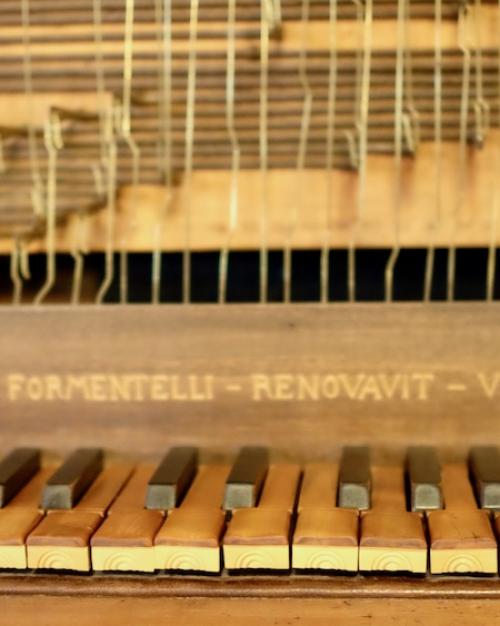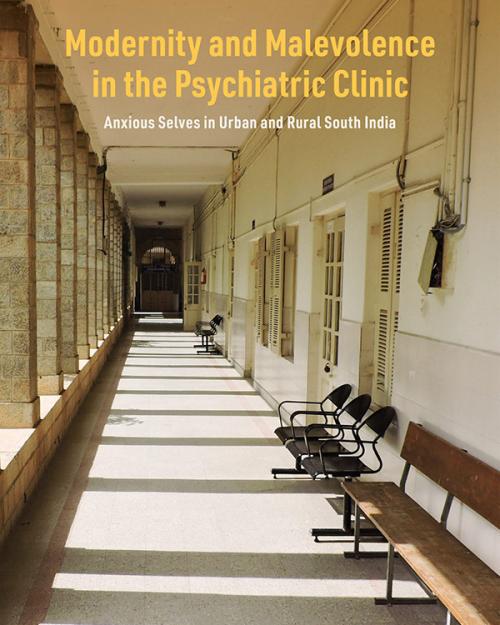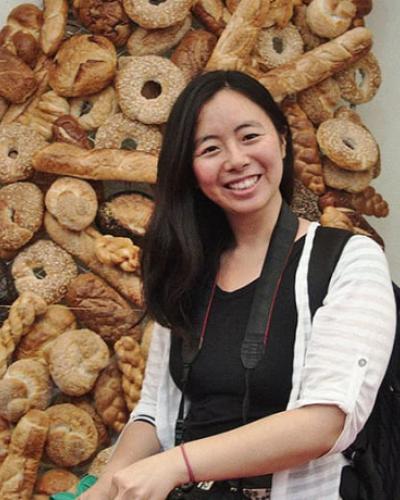Why do people eat the food they eat? Why do consumers in East Asia choose to incorporate bread into their daily diets, alongside or over rice? What kinds of social meanings are embedded within these changing everyday culinary practices and this diversification of foodstuff? As people in East Asia have consumed and continue to consume more and more wheat, how are notions like national identity formation and appetites for modernity latent in such mundane bites of yeasty bread loaves?
My research explores how people approach being modern, specifically through the lens of anthropology. I analyze value and social meaning in the purview of foodways, global trade, economic policy, food safety, cultural heritage and identity. As a Ph.D. Candidate in and a National Science Foundation fellow, I conducted three years of immersive multi-sited fieldwork in East Asia, specifically focusing on Japan, Taiwan and China, looking at the oft-neglected, but analytically rich realm of bread production, distribution and consumption--and its encompassing baking industry and culture—to analyze appetites for modernity and transformations in society. This investigation has also led me to fieldwork in the US, to the source of much of the wheat production for bread (alongside excursions to domestic wheat farms in East Asia). Through participant observation and interviews, I investigate the ways in which a food item not conventionally associated with Asia in academic and popular discourse—bread—becomes folded into the social lives of people and becomes a source of not only nourishment, but also a touchstone of national, local and regional identity as part of larger transnational movements of a modern world. These transformations and material connections are made possible through global trade and overseas networks, and reflect and contribute to changing tastes and society in pursuit of—and embodying—a modern life.
My interactions and encounters in Asia to this end have been diverse and varied, but center around the ‘life cycle’ of bread which involve associating directly with specialists in the food world: farmers, grain marketers, traders, distribution experts, genetic breeders, horticultural researchers, food processing machine dealers, millers, bakers, celebrity chefs, cafe owners, educators, cooking instructors, artisans, consumers, bread appreciators, food writers, bakery event organizers, bakery artists (including bread sculptors and bread-themed watercolorists, etc.) and beyond. My interactions bring to light how this particular food item (bread) moves across hands and machines, but also how the complex networks involved cut across spatial and categorical boundaries of expertise, region and class in the construction of modern identities. I highlight how individuals make meaning of their foods and how their action and participation vis-à-vis these cultural artifacts are pivotal in their composition and construction as moral and social beings within greater contemporary cultural and economic frameworks.
Another great boon of working in this realm of approaching modernity through food systems is the sensory pleasure derived—alongside the meaningful cognitive rewards of generating analyses and the social sense of fulfillment in affiliating with these communities. I’m privy to innovations in bread, whether that means tasting canned breads designed for both humanitarian efforts and manned space exploration, savoring local breads crafted by artisans (using dried longans, for example, or other delectable fruits and ingredients) or sampling award-winning submissions to the prestigious Coupe du Monde de la Boulangerie (The World Cup of Baking) in Paris—as these innovations are part of modern projects negotiating local, regional and national identities. I also find my encounters speaking with scientists and specialists on food technology and science exceedingly illuminating in understanding current and projected notions of where our food system is (or may be) heading.
I also collaborate in interdisciplinary contexts, bringing in researchers in science and technology studies, agricultural sciences and other fields in generative conversation. I am leading a three-part project on ethnographic poetry and creative prose in the form of publication, display and presentation entitled Whispers from the Field, funded by Cornell Council for the Arts. My interest in the humanities and literary arts also involves published translations of speculative works that extrapolate on science, technology and society.
My commitment to interdisciplinary dialogue, current societal and political issues and pressing concerns surrounding food systems extends to my pedagogy, as I am currently teaching a course entitled, "Food Technology, Risk and Society."
I am grateful to the Department, East Asia Program, Southeast Asia Program, The Einaudi Center, Cornell University; The National Science Foundation; Sophia University Institute of Comparative Culture; Inter-University Center for Japanese Language Studies; TLI; The Institute of Ethnology, Academia Sinica; and the Department, The University of Hawaiʻi at Mānoa for supporting my research.
Publications:
“Forging Ahead with Bread: Nationalism, Networks and Narratives of Progress and Modernity in Japan,” in Feeding Japan - The Cultural and Political Issues, eds. Andreas Niehaus and Tine Walravens) (Cham, CH: Palgrave Macmillan, 2017), 191–224.
Writing for Academic Public Outlets:
“Stepping into the lo‘i: On taro production and community building at Hawai‘i's Kānewai.” Food. Society for the of Food and Nutrition. August 2018.
“Col(Lab) on Food, Risk and Privilege.” Food. Society for the of Food and Nutrition. June 2018. Republished in the Program in American Studies, Princeton University website.
“Residences, Rentals and Redolent Delectables: Women entrepreneurship in the baking industry in Japan.” Food. Society for the of Food and Nutrition. May 2018.
Report on “Domestication and Selected Phenotypes Through the Lens of Sociocultural " poster presentation at the International Symposium on Rice Functional Genomics. 9 – 11 Nov. 2011 in Taipei, Taiwan: Academia Sinica. Cornell University Southeast Asia Program E-Bulletin, Spring 2012.





